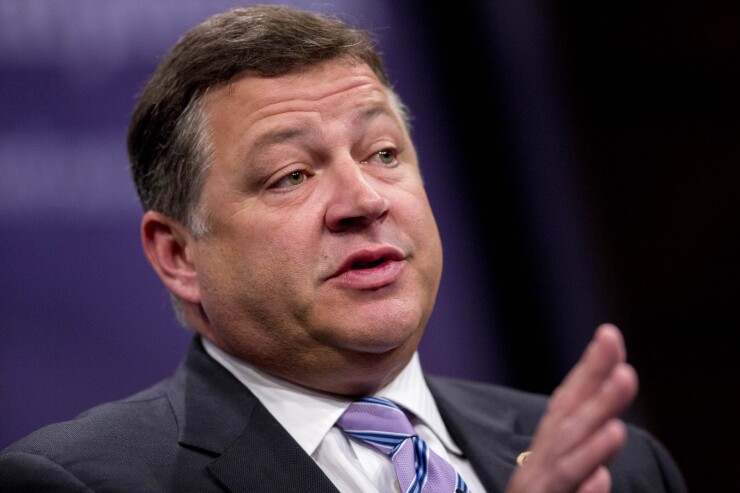
DALLAS – Restoring America's aging transportation infrastructure will require a number of funding sources, ranging from a higher federal gasoline tax to private activity bonds, and increased use of public-private partnerships, business executives told members of a House committee Wednesday.
"We support increases in federal fuel taxes and linking them to inflation," Frederick Smith, chairman and chief executive officer of FedEx Corp. said at a hearing held by the House Transportation & Infrastructure Committee "Public-private partnerships could do some good things, but what really needs to happen is for Congress to raise the federal gasoline and diesel taxes."
The transportation funding solution involves a basket of sources, said Mary Andriga, chairwoman of construction equipment manufacturer Vermeer Corp. "The answer is all of the above: higher gasoline tax, more P3s, maybe some bonding, and an infrastructure bank," she said.
Private financing cannot replace public funding, she said, but expanding the use of private activity bonds would help attract investments in infrastructure.
The five years of federal funding in the Fixing America's Surface Transportation (FAST) Act adopted in late 2015 did not solve the transportation revenue problem, Andriga said.
"We know that when reauthorization of these programs comes up again in 2020, the Highway Trust Fund will need more than a $100 billion cash infusion to pass a long-term bill just at status-quo levels," she said.
Bold leadership is needed now to deal with the looming insolvency of the HTF, Andriga said.
"We need this committee and our congressional leadership to work with President Trump to keep his promise to fix our broken infrastructure systems and to fulfill a basic federal responsibility to facilitate commerce in the U.S.," she told the committee members.
Wednesday's session was the committee's first full hearing in the new 115th Congress and is the beginning of the process of funding a 21st century infrastructure, said committee chairman Rep. Bill Shuster, R-Pa.
"We now have a unique opportunity," he said. "The wind is at our backs, and it's time to act on our infrastructure needs."
The recent presidential campaign raised the profile of infrastructure in the minds of the American people and policymakers, Shuster said.
"One thing November's election taught us was that the American people are ready for their elected officials to rethink the way we do things here in Washington and challenge the status quo," he said. "In fact, I believe this was the first time a president ever mentioned the word 'infrastructure' in an inaugural address."
Linking federal fuel taxes to increases in inflation would restore the HTF, said Rep. Peter DeFazio, D-Ore., the ranking Democrat on the panel.
"Let's index the gasoline tax to construction cost inflation and use that revenue to support up to $500 billion of 30-year bonds," DeFazio suggested. "That would give use an additional $23 billion a year that would be dedicated to transportation."
Congress last raised the federal fuel taxes, which are dedicated to the HTF, in 1993.
A letter sent to President Trump Wednesday from 391 business and labor organizations called on him to follow through with his campaign promises of increased infrastructure spending by providing more revenue for the HTF.
"Your administration and Congress must restore solvency to the Highway Trust Fund to ensure that the federal government can maintain a state of the art infrastructure system," the groups said in the letter. "This will require a commitment to a long-term, reliable, dedicated, user-based revenue source for the Highway Trust Fund and the effective surface transportation programs it supports."
Signers include the National Association of Manufacturers, U.S. Chamber of Commerce, Association of General Contractors, and the AFL-CIO.





